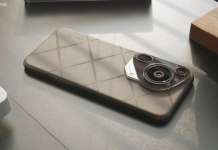Telefonica Deutschland, which is Germany’s one of the leading mobile carriers, has picked Huawei and Nokia to build out its 5G network. 5G is said to be the next-big-thing and the next-generation mobile network that promise super-fast data speeds and low latency.
This move is being seen by many as a potential snub to the U.S. government which has been campaigning for its allies to keep the China-based telecoms equipment giant out of their 5G networks.

The United States is suggesting that the usage of Huawei represents national security risk because its equipment could be used for espionage by China. While U.S. has not provided any evidence to support its claim, Huawei has repeatedly denied this allegation.
Getting picked up by Telefonica Deutschland seems like a major relief for Huawei which has been facing scrutiny amid boycott campaign led by the United States. Countries like Japan and Australia have effectively banned the company from their 5G networks while the United Kingdom has yet to make a final decision.
However, the decision isn’t surprising given that the German government decided in October that it would not exclude Huawei from its 5G networks. Instead, the country introduced a draft proposal for security guidelines when it comes to 5G equipment in which the equipment from vendors need to be certified.
EDITOR’S PICK: Oppo Reno3 series smartphones to come with 360-degree antenna design
Telefonica Deutschland said has said that the company was waiting for government approval. Now, Huawei and Nokia will help the company build its so-called Radio Access Network or RAN. This is the part of the network that hooks up devices with the actual 5G signal. In terms of security, the RAN is often seen as less sensitive than the core.
The company has also announced that it would cut its 2019 dividend by 37 percent in order to prioritize network investments. This comes on the heels of similar cuts in the payout by its competitors Deutsche Telekom and Vodafone.
Telefonica said that work should start in early 2020 and said it expected to have 5G up and running in Berlin, Hamburg, Munich, Cologne and Frankfurt by the end of 2021. A year later, 30 cities with a population of 16 million would be covered. Both of the company’s competitors are existing customers of Huawei but have yet to publicly confirm whether they will stick with the Chinese networks leader for 5G.
UP NEXT: Huawei and Honor online market share exceeds Xiaomi, Vivo, Apple and OPPO in Q3 in China: Counterpoint report
(Via)







